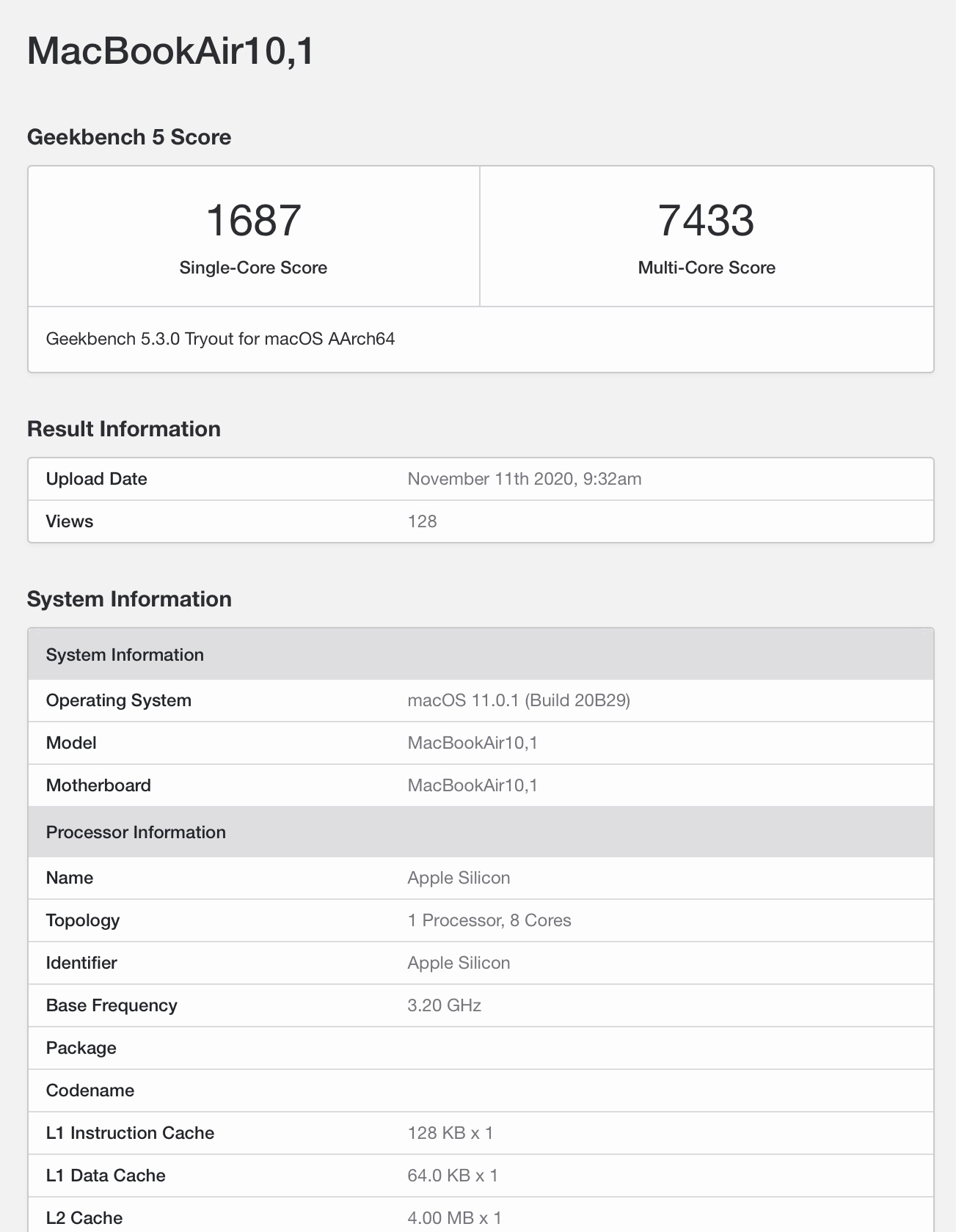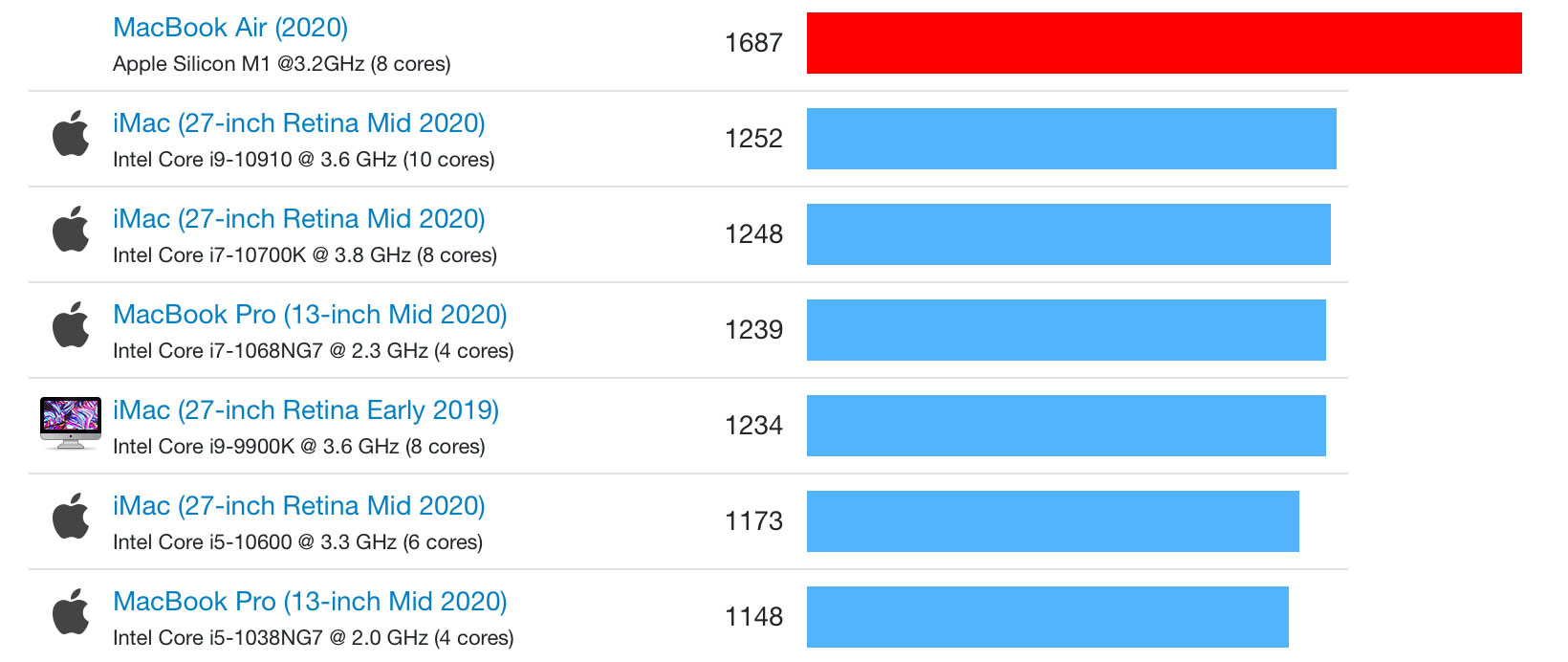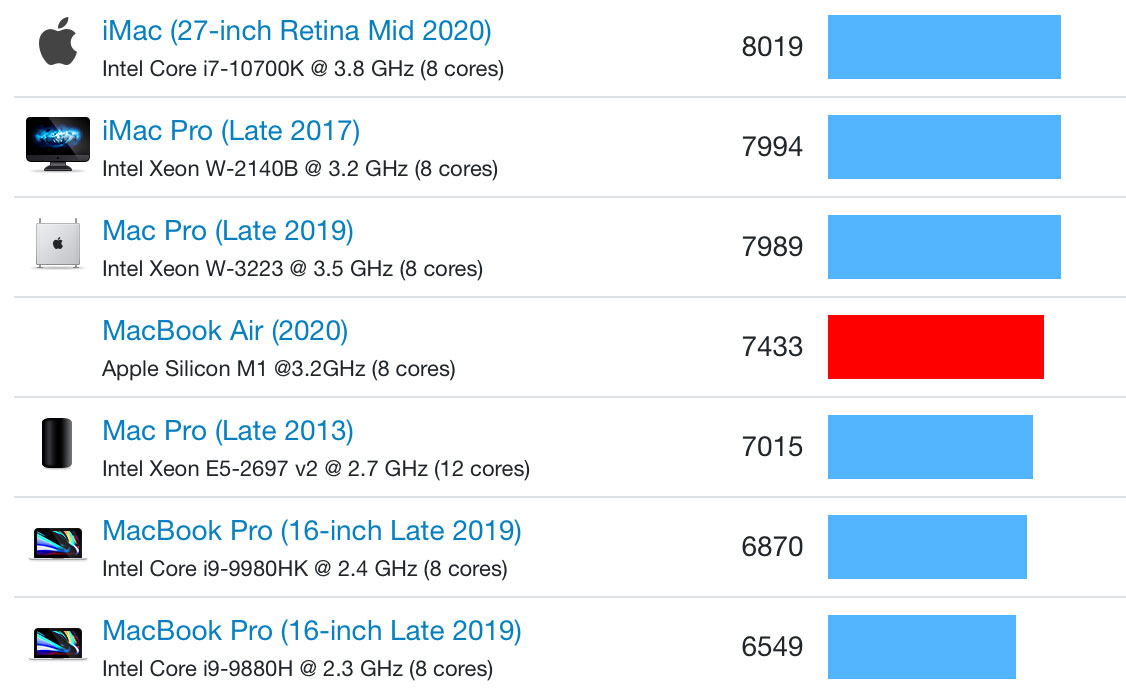Actually, consistent base model pricing for updates of the same model, even if those updates offer significant improvement, is typical for Apple -- if they can maintain at least as much profit margin, which it's assumed is the case for these.Sorry, don't have time to read 32 pages, but did nobody stop to ask this question:
If this chip is truly faster and more efficient in day-to-day usage, why is Apple not selling it at a premium, above and beyond what the Intel equivalents cost? Surely a more efficient and powerful Mac is more valuable?
It is very unlike Apple to sell a product for less than what they could. In fact, their investors would/should scream bloody murder.
Plus, especially for these entry-level models, Apple doesn't want to reduce accessibility (and thus volume) by increasing price.
I suspect what they have in mind for these models is the opposite—to increase profits by using these as a vehicle to get more consumers to switch from PC to Mac. At least since 2003 (I can't speak to before that), these are the first computers Apple has offered that (assuming the preliminary benchmarks pan out) give significantly higher processing performance than their PC counterparts. This provides Apple with a type of product differentiation it has not (at least since 2003) had before, which might drive some to switch.
Up to this point the primary differentiator (and it's a powerful one) has been the OS. Secondary differentiators have been the form factor, build quality, design, support, reliability, screen quality, branding and, more recently, SSD speeds. Now they (potentially) have a new powerful differentiator, which is processing speed (and possibly battery life as well, but I don't know the battery life figures for the best PC laptops in that area).
Last edited:






